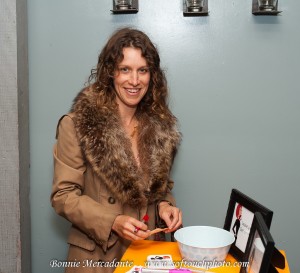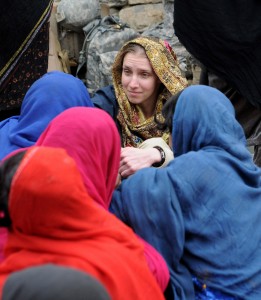Over the past 20 years the number of working women in the UK has risen, while the number of working men has declined. Indeed, according to the centre-right think-tank Policy-Exchange, there will be more women in work than men by 2014.
 As an increasingly motivated and powerful workforce, women are increasingly seeking out new occupations. One of the ways they’re doing this is through voluntary placements.
As an increasingly motivated and powerful workforce, women are increasingly seeking out new occupations. One of the ways they’re doing this is through voluntary placements.
Why volunteer?
Commitment is a big thing – especially when choosing a career that could last a lifetime. Volunteering is a way for women to try out different professions without having to make large investments of time and money.
For example, those keen to enter the medical profession could arrange a temporary placement at an African hospital or with an Asian health clinic.
When deciding on timescales, it’s worth bearing in mind that longer placements tend to be more rewarding. This is because longer-term volunteers are better able to earn the trust of their fellow workers. Eager volunteers often find that they can take on a great deal of responsibility.
Who volunteers?
While the image of volunteering may be that of pre-university students teaching English in Asia, there are increasing numbers of professional women who volunteer as part of a career break. There are numerous organisations that specialise in arranging professional placements for women from engineering, medical, legal, environmental and educational backgrounds.
Benefits of volunteering
 Apart from the opportunity to try out a completely different type of employment, volunteering can be a good way to develop an existing career. For example, volunteers can use their placements to gain a host of valuable contacts and make sure that they’re the first in line when a paid job becomes available.
Apart from the opportunity to try out a completely different type of employment, volunteering can be a good way to develop an existing career. For example, volunteers can use their placements to gain a host of valuable contacts and make sure that they’re the first in line when a paid job becomes available.
Of course, volunteering isn’t just about work. According to the UK government’s Citizenship Survey, three quarters of volunteers say that they are most interested in making a positive difference to the world.
Whether it’s working with disabled children or helping conserve a fragile ecosystem, volunteers often report a deep sense of satisfaction arising from the work they do.
Placements also develop the self in other ways. They provide the chance to learn new skills, boost self-confidence, acquire and practice a language, and build inter-personal relationships. Rather than passively absorbing the culture of another country, volunteers actively engage with it and gain a deeper understanding of the world as whole.
Author bio
Julia Mills is a freelance journalist specialising in education and the voluntary sector. Before becoming a writer, she spent a summer volunteering at an Indian newspaper in Bangalore. Her first assignments were for Projects Abroad.
